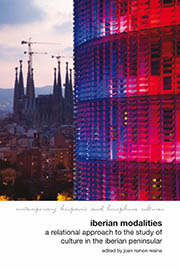Introduction: Iberian Modalities: The Logic of an Intercultural Field
Summary
Iberianism is not a new idea but its incorporation into academia as a distinct field of knowledge certainly is. And like all new paradigms, it encounters considerable opposition for complex reasons that one can only hope to lay bare and try to analyze. Expecting to dispel them would presume that academics are open to persuasion by argument. But the myth of sovereign reason is nowhere as obviously mythical as in academia, which is not so much a forum of free discourse as a hothouse of idées reçues. To believe that enlightened discourse can move disciplinary mountains or the trumpets of critique instantly bring down curricular walls is to believe in miracles. Here, as elsewhere, there is process. New ideas go through a trinity of stages. First they are ridiculed, next they are fought, and lastly they are institutionalized, taken for granted and trivialized. Iberian studies has climbed from the first to the second stage. It no longer encounters just inertia but also direct challenges. In the face of distinct opposition, Iberianists are like the Unnameable in their stubbornness: “I'll go there now, I'll try and go there now.”
But, someone might object, if Iberian studies is seeking an academic niche in the space already occupied by Hispanism and Lusitanism, does it not reveal its intrinsic dependence when it asks these disciplines to make room for an alternative that relativizes them by inserting them into a larger, more complex purview? The answer to this question is a guarded yes. In principle there is no reason why new-fangled Iberian studies departments could not emerge side by side with existing foreign culture departments, including departments of Spanish and Portuguese. Divergence of approach and ampler range of study would more than justify that proposition.
Information
- Type
- Chapter
- Information
- Iberian ModalitiesA Relational Approach to the Study of Culture in the Iberian Peninsula, pp. 1 - 20Publisher: Liverpool University PressPrint publication year: 2013
